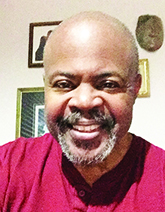
Were Black jurors illegally exempted from certain cases because of color?
By Cash Michaels

Did prosecutors deliberately, and illegally, exclude African-American jurors from two recent NC cases because the defendants were also Black? That is the question the NC Supreme Court is wrestling with this week, and the High Court’s decision, interestingly, could determine for the first time whether North Carolina officially tolerates racial discrimination in jury selection.
Exempting Black jurors from high profile capital cases involving Black defendants is nothing new in the state’s legal history. Many will recall how the prosecutor in the infamous Wilmington Ten case in 1972 feigned illness just so that he could ditch the mostly Black jury chosen to try the ten civil rights activists, in favor of later choosing a primarily “KKK” jury to guarantee conviction, despite no evidence.
There have been numerous other cases throughout North Carolina’s history of qualified Blacks being excluded from jury duty in order to guarantee convictions of Black defendants. But white prosecutors have rarely been held accountable for the ploy, known commonly as a preemptory challenge, which allows jurors to be justly excluded for any reason except their race.
In the two cases brought before the seven-member state Supreme Court Monday involving criminally convicted defendants Cory Bennett of Sampson County and Cedric Hobbs of Cumberland County, attorneys argued that African-Americans were excluded from their respective juries only because of their race.
In State v. Bennett, tried in 2016 in Sampson County, prosecutors excluded only two jurors, but both were Black. When the defense objected, the judge ignored the challenge and never required the prosecution to explain. But the judge did ask the defense attorney about her strikes against “white Americans.”
Defendant Cory Bennett was convicted of possession and trafficking methamphetamines, and sentenced to 13 years in prison.
In State v. Cedric Hobbs in 2014 in Cumberland County, Hobbs was convicted of first-degree murder, and sentenced to life in prison (prosecutors sought the death penalty). The prosecutor used eight preemptory challenges, six of them Black. When the defense objected, the prosecutor responded that they were “somehow [saying] we’re just racists in this county.”
According to a press release from the Center for Death Litigation in Durham, “A statistical study showed the prosecutor’s office in this county has a twenty-year track record of removing Black jurors at twice the rate that they remove all other jurors. And the prosecutors in this case questioned Black jurors very closely on certain issues but did not closely question white jurors who had the same characteristics.”
Two recent studies show that qualified Black jurors in North Carolina are twice as likely to be excluded from juries than whites, thus denying Black defendants truly a jury of their peers. “Research has also found that juries with two or more members of color deliberate longer, discuss a wider range of evidence, and are more accurate in their statements about cases, regardless of the defendant’s race,” said the Center for Death Litigation, adding. “…[A] recent analysis revealed that North Carolina’s high courts have failed to enforce the law established in Batson v. Kentucky, a 1986 U.S. Supreme Court decision that barred racially-motivated jury exclusion. In the thirty years since Batson, more than a hundred North Carolina defendants have raised claims of race discrimination against jurors of color. Yet, the state’s appellate courts have never upheld a single one of those claims.”

